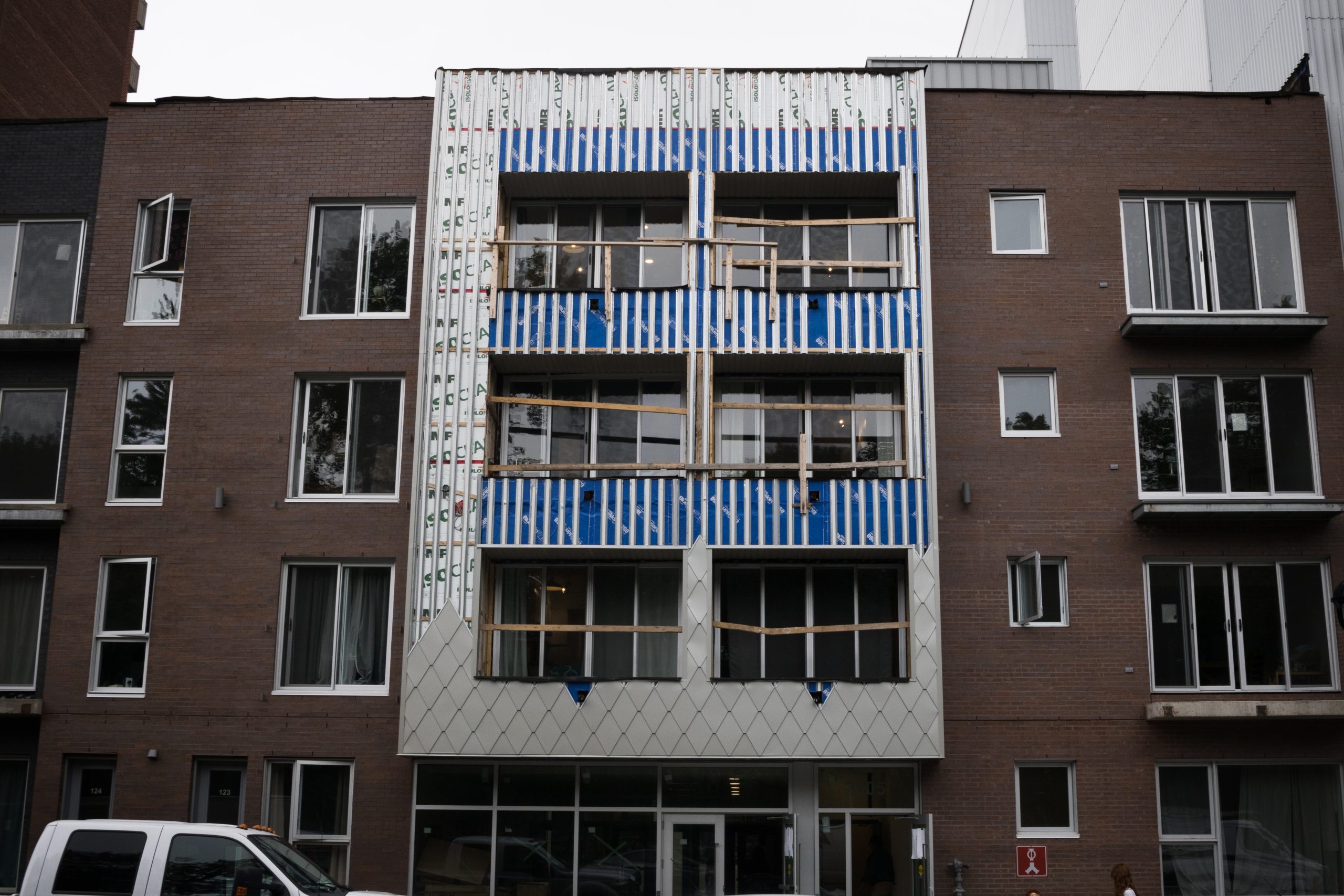As I write this, it is T-3 days until my wifi is supposed to be installed. Hopefully by the time you read this, it will be. This week has been a rollercoaster. On Friday, Sept. 4, my parents and I picked up the big pieces of furniture from my partner’s place. My dad bought a new Jeep truck in quarantine, so we were ready to use it, to say the least. My partner was in an online class at the time so we packed without him and returned to my house, where we proceeded to pack all my stuff, bundling the truck in blue tarps in case it rained. Saturday morning at 10:30 a.m. was our move-in slot. And thus began the parking problems. My boyfriend and I were fortunate enough to have a lot of help from both our families, but unfortunately this meant parking was an issue, and one overwhelming parking dispute and an apologetic email later, we were moved in — well, our stuff was anyway.
258 square feet of boxes, a bed, a desk, a nine-drawer mid-century credenza (our dresser), carpet and bamboo table with a ridiculously heavy glass top… and we left to have lunch at my partner’s grandparents’ back in Laval. We set up the basics that night, but left the next day again to cat sit and attend my cousin’s socially-distant birthday brunch, also in Laval.
Suddenly, it was Tuesday and E-school was starting, without wifi. My boyfriend and I spent the whole week running from cafe to cafe, before I eventually caved and joined The Woodnote’s Facebook group, asking if anyone was willing to lend me their wifi.
Going from pandemic isolation in the suburbs (or weekend camping trips and drives to Gaspé) to sudden immersion in a world that seemed opposite to what we lived the last six months was a shock to the system. Sure, tidbits still resonate, masks in the unfinished hallways, stairwells and in the stores— but I have not been this out and about since March and I am exhausted.
Back to the building: I had passed by its exterior over the summer, so I knew what it looked like, with red brick and unfinished diamond-shaped grey siding unfinished balconies with wood barriers blocking the doors, and a common room filled with recycling bins. Both staircases in the building look like emergency staircases, not warm, welcoming, main staircases like I suppose one would typically encounter. It is industrial to say the least, and I was, and still am surprised that it isn’t any nicer. It is more industrial than the emergency staircases in the Hall Building, but without the greenhouse murals.
My apartment on the other hand, is great, pretty much exactly what I expected: a five-foot fridge and lots of cabinet storage, one big closet with sliding doors, and a really nice bathroom. We look out onto the cement wall of the building next to us. No windows looking out at us, so that means curtains are the last thing on my to-do list. We bought some hanging plants that thrive on neglect and indirect sun, and mounted our not-so-small tv on the wall above my partner’s desktop computer. It’s pretty decked out— imagine Wade’s set up from Kim Possible, then tone it down a bit. It’s really coming together. Now we just need stuff to put on our bare walls, wifi, and to figure out how to do our laundry.
Photo by Christine Beaudoin
